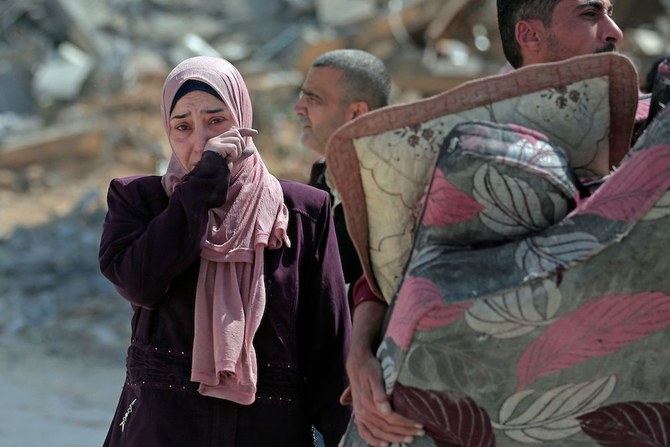CAIRO: Stalled talks aimed at securing a ceasefire in the war between Israel and Hamas are expected to restart in earnest in Qatar as soon as Sunday, according to Egyptian officials.
The talks would mark the first time both Israeli officials and Hamas leaders joined the indirect negotiations since the start of the Muslim holy month of Ramadan. International mediators had hoped to secure a six-week truce before Ramadan started earlier this week, but Hamas refused any deal that wouldn’t lead to a permanent ceasefire in Gaza, a demand Israel rejected.
Prime Minister Benjamin Netanyahu has also approved a plan for a military offensive on Rafah, the city on the southern edge of the Gaza Strip where up to 1.5 million Palestinians are sheltering.
The United States and other countries have warned such an operation could be disastrous, but Israel says it plans to push ahead to destroy Hamas battalions stationed there. Israel claims it will move people to safety first.
More than two weeks after receiving an Israeli-approved proposal for a truce, Hamas replied with a counter proposal of a six-week truce to allow aid in, and a prisoner-hostage swap at a ratio of up to 50 Palestinian prisoners for every Israeli hostage. It also calls for talks at a later stage on ending the war completely.
Analysts noted a change in Israel’s language in rejecting the new Hamas offer. Netanyahu dismissed last month’s proposal from the militant group as “completely delusional” and “from another planet,” while the most recent one was merely “unrealistic.”
Hamas official Sami Abu Zuhri said Israel’s rejection showed that Netanyahu was “determined to pursue the aggression against our people and undermine all efforts exerted to reach a ceasefire agreement.” Washington should push its ally to accept a truce, he said.
Meanwhile the first ship bringing aid by sea, the Open Arms, arrived off the Gaza coast on Friday towing a barge containing 200 tonnes of food. The charity World Central Kitchen aims to land the cargo using a temporary jetty, although humanitarian agencies say aid delivered by sea or air is inadequate and Israel must stop blocking land deliveries by truck.
If the new sea route is successful, it may ease the hunger crisis affecting Gaza, where hundreds of thousands of people face malnourishment and hospitals in the worst-stricken northern areas have reported children dying of starvation.
The UN says all of Gaza’s 2.3 million people are suffering from food shortages and a quarter of them are on the brink of famine, especially in the north.

























